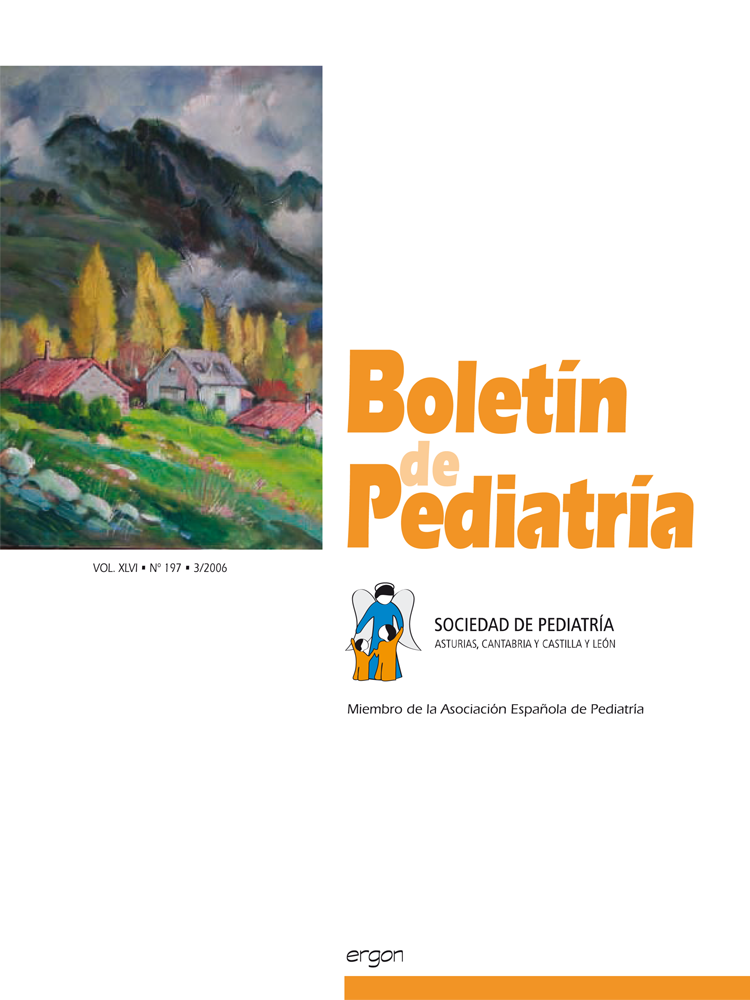Abstract
Objective: to know the treatment variability in acute bronchiolitis by respiratory syncytial virus (AB-RSV) in a not university hospital, analyzing the last ten year?s changes. Design and setting: descriptive and retrospective study. AB-RSV´s clinical cases of infants less than 6 months of age, from 1996 to 2006 .We compare both five-year periods (96-01 and 01-06). Results: in the study period 161398 paediatric urgencies were attended, and 7.662 infants less than 6 moths were admitted. From them, 810 were acute bonchiolitis, and 264 of this were VSR positive. Median age was 3.1 months (CI 95% 2.6-3.7). 46.2% of patients were taken treatment (33% bronchodilators, 17.4% corticoids and 6.1% antibiotics). After admission, the diagnostic testing were chest-x-ray film (86.4%) and blood test (61%). During the hospitalized period treatments: nebulized salbutamol (81.4%), corticoids (44.7%), nebulized epinefrine (15.2%) and nebulized anticolinergics (6.1%). Supportive therapies: oxygen (68.2%), nasal wash (84.5%), humidity (53%) and chest physiotherapy (31.4%). The 26.9% needed fluid therapy and 10 infants (4.2%) were discharged to intensive care unit. Median length of stay: six days (CI 95% 6.6-6.3). Quinquennial comparison (96-01 and 01-06): we found statistics differences in the utilization of corticoids (55.2 to 27.3%), epinefine (0 to 40.4%) and salbutamol (94.2 to 57.3%). There were not significant statistics differences at the median length of stay and the development. Conclusions: in spite of the last 5 years decreasing corticoids and salbutamol use, RSV acute bronchiolitis pharmacological treatments continues using in high percentage, although their usefulness have not been not proven yet.

This work is licensed under a Creative Commons Attribution-NonCommercial 4.0 International License.
Copyright (c) 2006 Boletín de Pediatría
